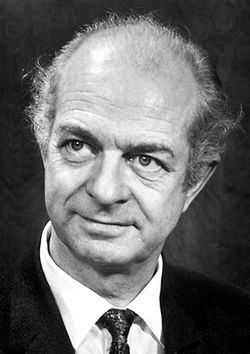Top Qs
Timeline
Chat
Perspective
List of nonreligious Nobel laureates
List of self-identified nonreligious Nobel laureates From Wikipedia, the free encyclopedia
Remove ads
This list of nonreligious Nobel laureates comprises laureates of the Nobel Prize who have self-identified as atheist, agnostic, freethinker, or otherwise nonreligious at some point in their lives.[2]

Many of these laureates earlier identified with a religion. In an estimate by Baruch Shalev, between 1901 and 2000, about 10.5% of all laureates, and 35% of those in literature, fall in this category.[1] According to the same estimate, between 1901 and 2000, atheists, agnostics, and freethinkers won 8.9% of the prizes in medicine, 7.1% in chemistry, 5.2% in economics, 4.7% in physics, and 3.6% in peace.[1] Alfred Nobel himself was an atheist later in life.[3]
Shalev's book lists many Jewish atheists, agnostics, and freethinkers as religiously Jewish. For example, Milton Friedman, Roald Hoffmann, Richard Feynman, Niels Bohr, Élie Metchnikoff, and Rita Levi-Montalcini are listed as religiously Jewish; however, while they were ethnically and perhaps culturally Jewish, they did not believe in a God and self-identified as atheists.[1]
Remove ads
Physics



Remove ads
Chemistry


Remove ads
Physiology or Medicine

Economics

Peace

Literature

Remove ads
See also
Notes
- Einstein used many labels to describe his religious views, including "agnostic",[16]: 216 "religious nonbeliever",[16]: 218 and a believer in "Spinoza's God."[16]: 204 He was an active participant in various humanist and Ethical Culture groups, including the First Humanist Society of New York and the Rationalist Association (UK).[17] He disliked labels like "atheist" and "pantheist".[18] See also Religious and philosophical views of Albert Einstein.
Remove ads
References
Wikiwand - on
Seamless Wikipedia browsing. On steroids.
Remove ads
